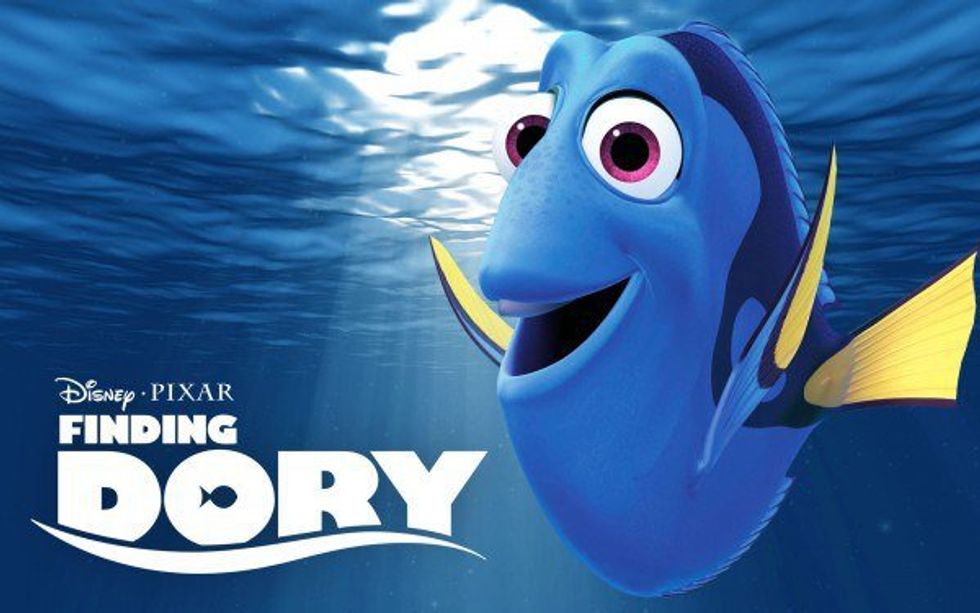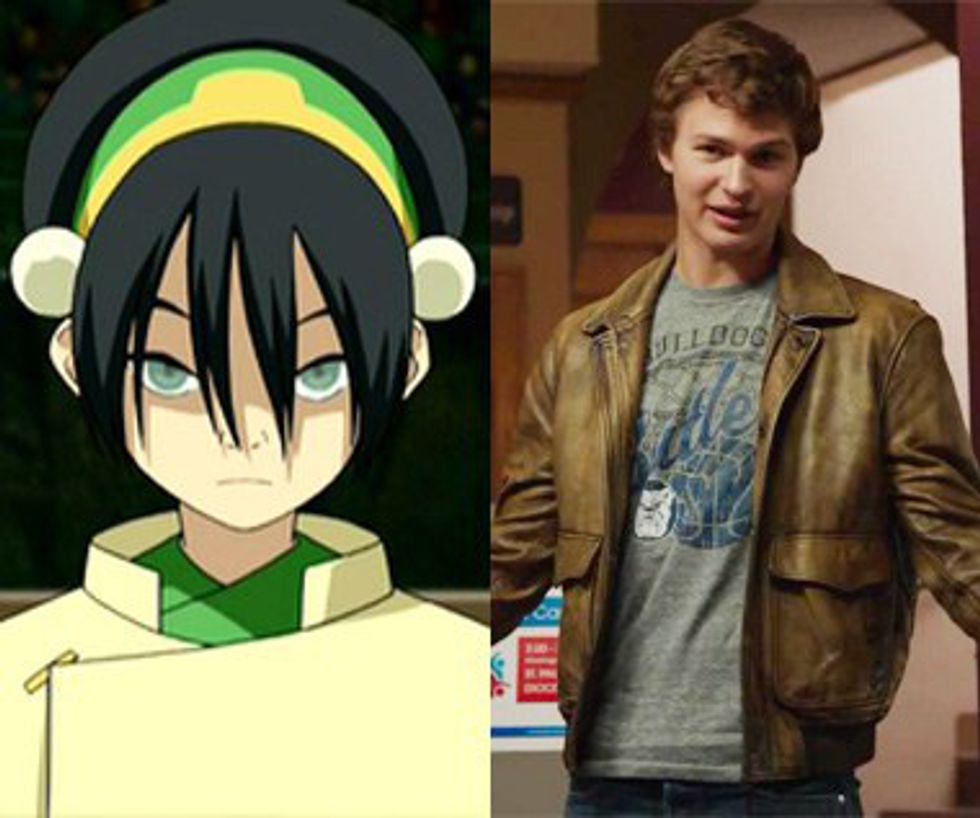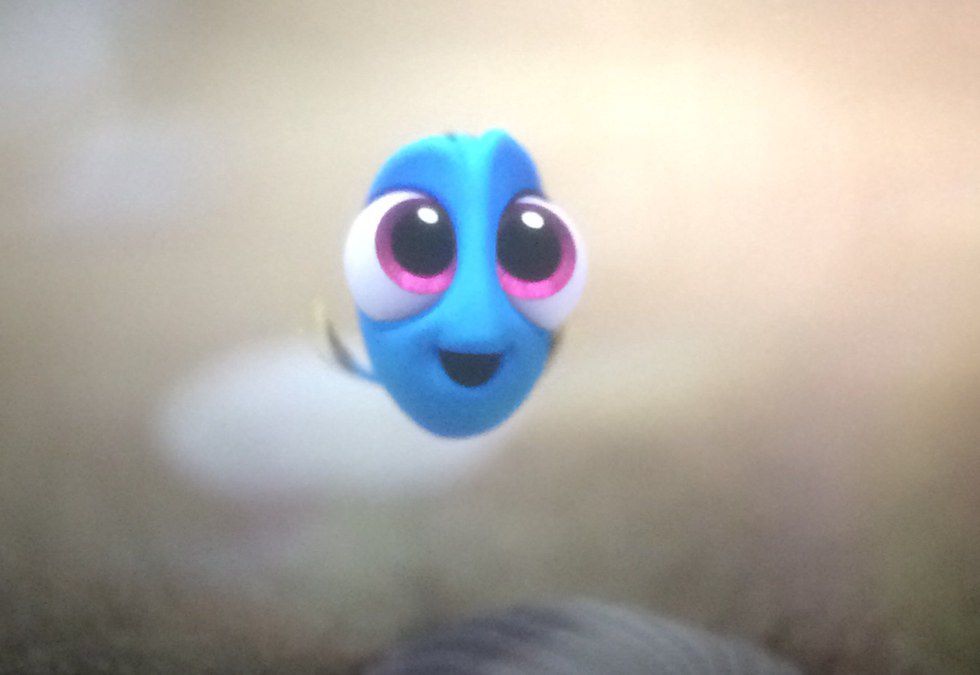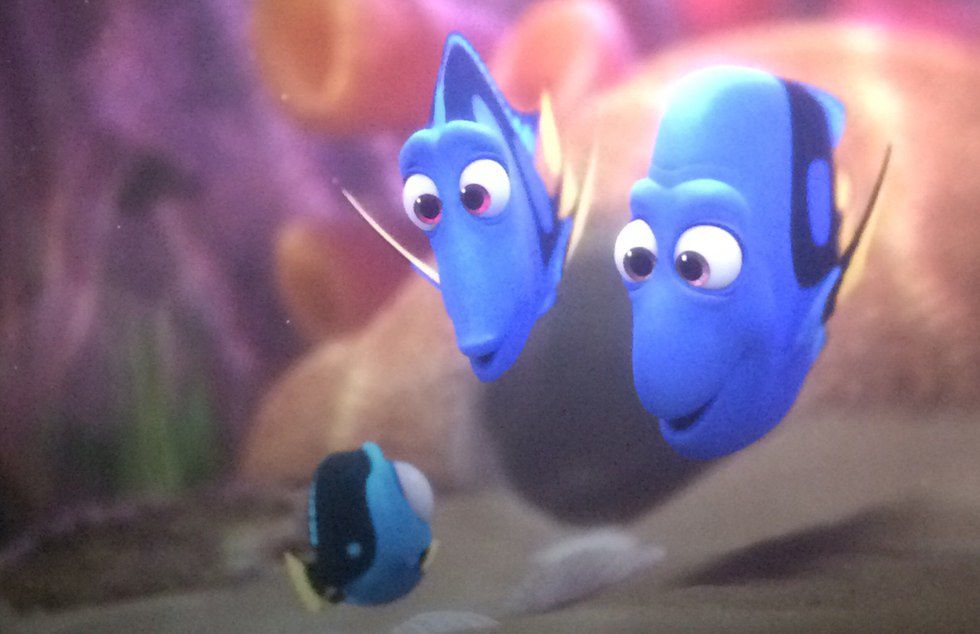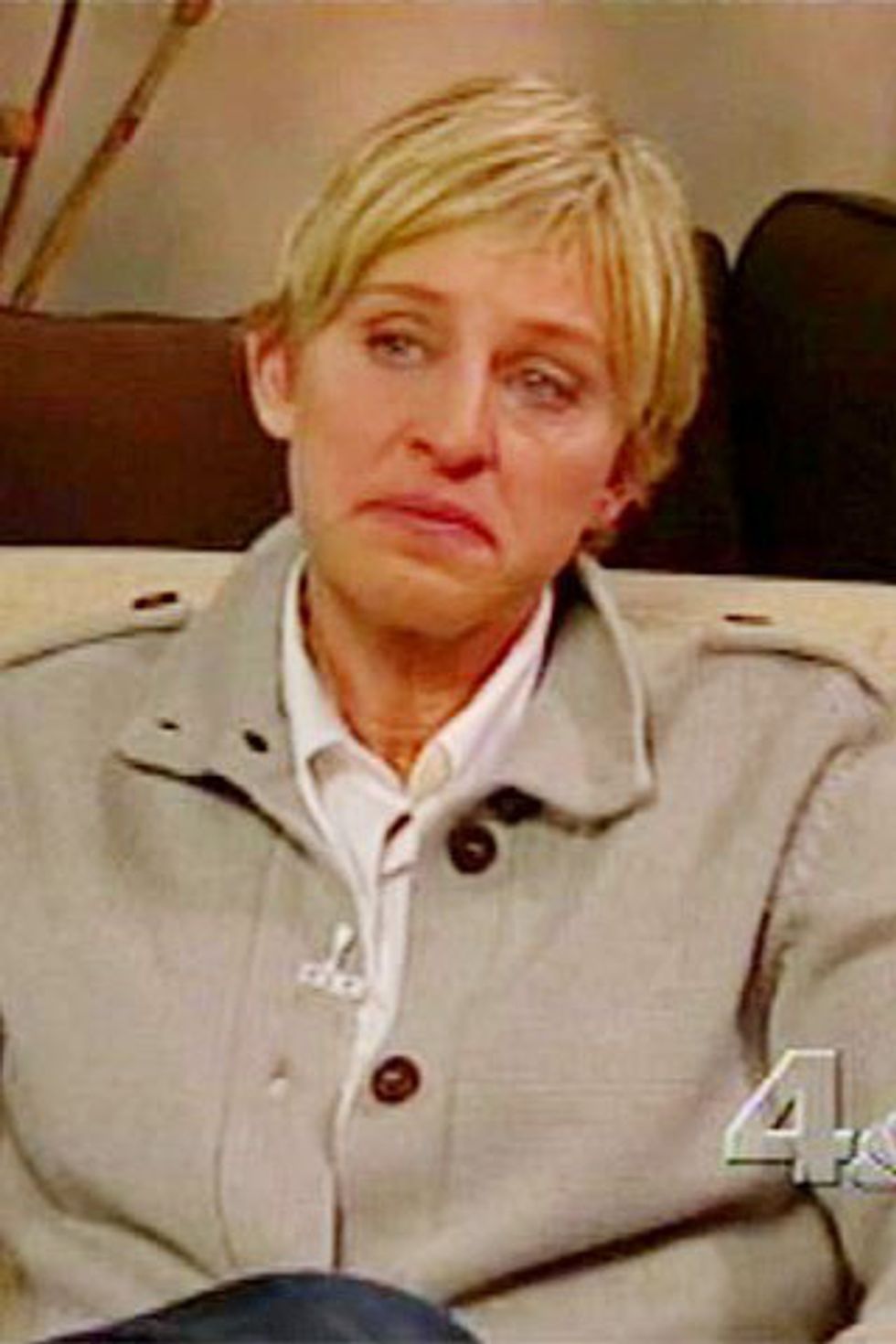As my friends and family know, and are probably tired of hearing, I have been looking forward to Disney's new movie "Finding Dory" ever since Ellen DeGeneres announced it. Needless to say, my expectations were met and exceeded. The plot was engaging and the animation was absolutely stunning. The movie contained the heartfelt moments of the original but, in my opinion, went further. However, one element of the movie that I in no way expected, but was overjoyed to witness, was the way it tackled the topic of disabilities.
(My sister and me at the premier of "Finding Dory: on Thursday night)
Characters with disabilities have been a hot topic in literature and films since the surge in popularity of The Fault in Our Stars John Green's book about two teenagers with cancer. The novel is celebrated for its realistic representation of teenagers trying to live a normal life, but with the added element of a deathly disability. Since this book, and the subsequent movie, audiences have been quite interested in stories with disabled protagonists--whether it be medical, physical, or mental--with stories like Me, Earl, and the Dying Girl and more recently, "Me Before You".
Disability stories have always had a warm place in my heart. It's a topic that is very real and true to me and my life, and therefore one I am quick to critique if not to my liking (I would like to say if not authentic, but everyone has their own story and experience with disabilities, so I do not wish to speak for anyone else). While The Fault in Our Stars was beautifully told, and excellently handled, it didn't resonate with me as it did with some of my friends.
But for some strange reason, a little blue fish did.
To me, Dory is the epitome of a strong, positive, and accurately represented protagonist with a disability.
For those who know of "Finding Nemo", we know Dory as the optimistic, loving, and quirky fish that helped Marlin find his son. Back in 2003, audiences fell in love with this kind character for her heart of gold, childlike innocence, insistence to help, and mantra "just keep swimming." But in "Finding Dory," we see a darker side to Dory; one that deals with her short-term memory loss disability.
Similar to the "Me Before You" protagonist Will Trayner, Dory has a loving community. In the first scene of the movie, along with small flashbacks throughout, the audience sees the sheer love Dory's parents have for their daughter. They try everything they can to ease Dory's worries about her short-term memory loss, and create ways for her to continue to go about life, even when things become difficult and Dory forgets time and time again. From songs to shells and countless positive affirmations, Dory's parents create a strong bond with their daughter. Dory even has a supportive community outside her immediate family. Marlin and Nemo serve as Dory's surrogate family, and by being upfront and her authentic self, she charms her way into even the grumpiest of hearts.
However, "Finding Dory" also touches on the difficult aspects of living with a disability. For starters, not every fish is accepting of, or even sure how to handle, Dory's situation. Shortly after losing her parents at a young age, she travels the ocean on her own, and asks every fish she passes "Hi, I'm Dory, I have short-term memory loss. Can you help me find my family?" Some fish swim right past her, but most look at her, uneasy and unsure, and swim along while mumbling an excuse as to why they cannot help. I can attest, this is a very real situation, and I admire and relate to Dory as she tries to stay positive and not let the negative situations affect her overall cheerful demeanor.
Secondly, as Dory just keeps swimming and the memory of her family falters, she becomes less confident and more cautious. The fish she approaches immediately back away from her, seemingly knowing of her disability. Recognizing the discomfort of other fish, she begins to apologize more for her short term memory loss, and therefore taking the blame for it. Because she is so quick to assume the blame, it insinuates her mindset that she and her disability are the problem.
"I'm sorry guys. My bad."
A smaller aspect of the film, but one that resonated with me the most, took place during a flashback. During the night, Dory wakes up to her mother crying. She is worried for her daughter.
Worried she will never be able to live independently.
Worried she will never be safe.
Worried she will never be able to live life as a "normal" fish would.
These anxieties are extremely real. Everyone wants the best for their loved ones, and when "the best" is not possible to provide, it can seem as though hope is lost, as though disabled people can never truly live a full, beautiful life.
Of course, I say "can" because I feel countless disabled people, whether real or fictional, human or fish, reinstate this hope.
The beauty of Dory's story, and the reason why I feel she is an outstanding and noteworthy example of a protagonist with a disability, is her transformation. She continues throughout the film to be upfront with her disability, offering a simple "oh I'm sorry. I have short term memory loss" when she forgets conversations. However, she refuses to let others push her around or dictate her actions. While other sea creatures attempt to use Dory's disability to take advantage of her, her love and kindness serves as a strength in preventing this from happening. When she finds herself in a tricky situation, her creative thinking offers a new, successful solution. She shows assertiveness and resilience during her journey to find her family, refusing to let anyone or anything drive her off her path, while remaining her kind, helpful self. She does not let her memory loss allow her to second guess her worth and talents, or deterred her from any obstacle. And by the end of the film, she sheds her cautious attitude and gains a gentle, can-do confidence that I envy and admire.
Dory is able to grow as a fish, but even more importantly, she no longer sees her disability as a vice, as the reason to feel self loathing. She accepts it, does not let it stop her in doing what she wants, and is able to love herself.
And I think that is all anyone, with or without a disability, really wants.



